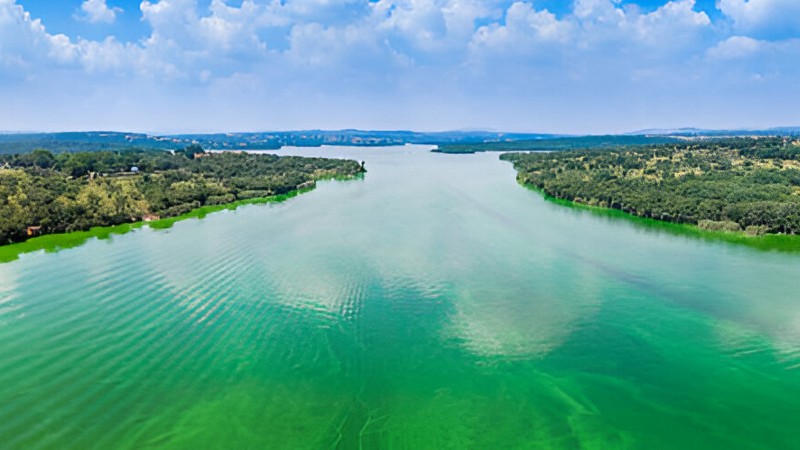Have you ever noticed how some people write Lake Texoma with all the right capital letters while others type it out as lake texoma? At first glance, it may seem like a small detail. But when you think about it, proper capitalization holds more power than most of us realize. It shapes how we respect places, how we communicate clearly, and even how we preserve history. So, should Lake Texoma be capitalized? Absolutely—and there are many reasons why.
In this article, we’ll explore why capitalization matters, why names like Lake Texoma deserve respect, and how little writing choices can shape our communication in big ways.
Why Do We Capitalize Proper Nouns?
Capitalization is not just a rule teachers force on us in grade school. It serves an important purpose in writing. When we capitalize words like Lake Texoma, we signal to readers that this is not just any random lake. It is a specific, unique place with its own history and identity.
Without capitalization, sentences can quickly become confusing. Imagine writing: “i went fishing at Lake Texoma Should Be Capitalized last weekend.” Even though the meaning is still clear, the sentence looks sloppy and unprofessional. Now, compare that to: “I went fishing at Lake Texoma last weekend.” The second version instantly feels polished, respectful, and grammatically correct.
Lake Texoma Is More Than Just a Lake
If you have ever visited Lake Texoma, you know it is not just a body of water. It is one of the largest reservoirs in the United States, sitting on the border of Texas and Oklahoma. Because of this, the name itself holds weight.
Capitalizing Lake Texoma is a way of recognizing its importance. It is not just a common noun like lake or river. Instead, it is a proper name tied to a specific location. Writing it correctly shows appreciation for its uniqueness.
Think of it this way: would you ever write new york city in lowercase? Probably not. You would write New York City because it is a proper place name. The same logic applies to Lake Texoma.
The Role of Respect in Writing
Language is not just about rules. It is also about respect. When we write about places, especially ones with cultural or geographical significance, capitalization is a small but meaningful way to show respect.
People who live near Lake Texoma or who visit often have a strong connection to it. Many families spend summers camping, fishing, or boating there. By capitalizing its name, you acknowledge the pride people feel for the lake and the role it plays in local life.
Ignoring capitalization may not seem offensive at first, but it can come across as careless. Writing lake texoma may give the impression that the writer does not care enough to treat the place properly.
Grammar Rules That Support Capitalization
Beyond respect and clarity, there are also concrete grammar rules that explain why Lake Texoma should always be capitalized. According to standard English grammar, proper nouns—including geographical names—must start with capital letters. This includes mountains, rivers, oceans, and yes, lakes.
For example:
-
Lake Michigan
-
Lake Tahoe
-
Lake Texoma
In each case, both the word Lake and the specific name are capitalized. Skipping capitalization not only breaks grammar rules but also weakens the sentence structure.
Everyday Examples That Prove the Point
Let’s look at some everyday examples. Imagine you are creating a travel guide. Which one looks better?
-
“lake texoma offers fishing, camping, and boating.”
-
“Lake Texoma offers fishing, camping, and boating.”
Clearly, the second option looks professional and trustworthy. If you were a tourist deciding whether to visit, the properly capitalized version would inspire more confidence.
The same goes for news articles, school essays, or even casual blog posts. Whenever Lake Texoma is mentioned, capitalizing it correctly makes the writing more credible.
How Capitalization Shapes First Impressions
First impressions matter, even in writing. If you send an email or publish an article about Lake Texoma, readers will notice whether or not you paid attention to capitalization. Small errors can create big doubts about your professionalism or attention to detail.
For instance, imagine a tourism website describing “lake texoma” in lowercase. Potential visitors may subconsciously think, “If they cannot even write the name correctly, how reliable is their information?”
On the flip side, proper capitalization immediately builds trust. It tells readers you care about accuracy and presentation.

The Historical Importance of Lake Texoma
Lake Texoma is not just another weekend getaway spot. It was created in 1944 when the Denison Dam was completed on the Red River. Since then, it has become a landmark in both Texas and Oklahoma.
With such rich history, the lake deserves recognition in writing. Capitalizing its name is a way of honoring its past. Just as we capitalize names of historical monuments like the Statue of Liberty or Mount Rushmore, we should also capitalize Lake Texoma.
Capitalization in Education and Professional Settings
In schools, teachers emphasize capitalization because it is the foundation of proper writing. Students who write lake texoma instead of Lake Texoma risk losing marks on their assignments.
In professional settings, the stakes are even higher. A poorly capitalized report, article, or email can harm credibility. Whether you are a journalist, a student, or a business owner, writing Lake Texoma correctly ensures your work is taken seriously.
Why People Skip Capitalization
So, if capitalization is so important, why do some people still write lake texoma? There are a few reasons.
-
Casual texting habits: Many people type quickly on phones and ignore capital letters.
-
Lack of awareness: Some may not realize that geographical names must be capitalized.
-
Carelessness: Others simply do not take the time to check.
While these reasons may seem harmless, they still create sloppy communication. Making the small effort to capitalize properly shows you value your message and your audience.
How Capitalization Connects to Identity
Places are tied to identity. For people living near Lake Texoma, the lake is part of their story. It represents community, recreation, and even livelihoods. Capitalization reinforces that identity.
When you write Lake Texoma with proper capitals, you acknowledge it as a place worth naming correctly. It’s a reminder that language shapes how we see the world and the respect we give to places we hold dear.
A Simple Habit That Makes a Big Difference
The good news is, capitalizing Lake Texoma Should Be Capitalized is an easy habit to adopt. Unlike learning complex grammar rules, this one is simple: always capitalize both words.
Next time you write an email, a blog post, or even a social media update about the lake, double-check your capitalization. This tiny detail adds polish and professionalism to your writing without requiring much effort.
Final Thoughts
So, should Lake Texoma be capitalized? Yes, without question. It is not just a rule of grammar but also a matter of respect, clarity, and professionalism.
Capitalizing proper nouns like Lake Texoma helps readers understand that you are talking about a specific, important place. It prevents confusion, builds trust, and shows that you care about accuracy.
In a world where small details often get overlooked, paying attention to capitalization is a simple yet powerful way to stand out. So, the next time you write about Lake Texoma, remember: capital letters matter more than you think.


